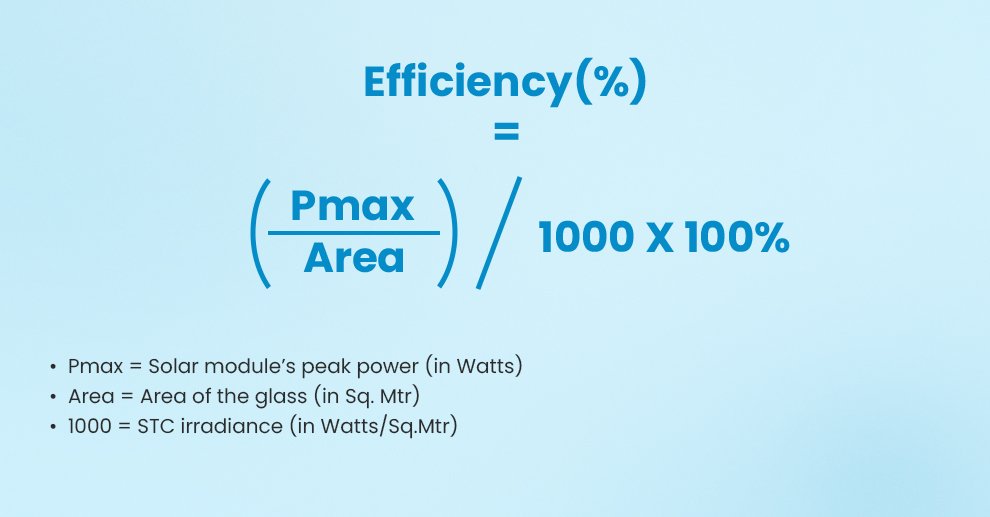How to calculate efficiency of solar panels

What is Solar Panel Efficiency? Solar panel efficiency calculation
The efficiency of a solar panel measures the portion of energy in the form of sunlight that can be converted into electricity. It is typically calculated using the following formula:
Photovoltaic solar cell efficiency formula:
Efficiency (η) = Pmax / (Esun × A)
- Pmax: Maximum output power of the solar panel.
- Esun: Unit area of solar irradiance (usually given in W/m²).
- A: Area of the solar panel (in m²).
This formula helps determine how effectively a solar panel converts sunlight into usable electrical energy. For example, a solar panel with an efficiency of 20% and an area of 1 m² will produce 200 kWh/year at Standard Test Conditions (STC) if exposed to the STC solar irradiance value of 1000 W/m² for 2.74 hours a day.
Factors Affecting Efficiency
- Latitude and Climate: The efficiency of a solar panel is influenced by the latitude and climate of the installation site, affecting the annual energy output.
- Temperature: Higher temperatures can reduce efficiency; the temperature coefficient indicates how much efficiency drops with increasing temperature.
- Shading and Dirt: Shading from trees or buildings and dirt on panels can significantly lower efficiency.
- Quality of Materials: The type and quality of materials used in the solar panel, such as solar cells (monocrystalline or polycrystalline silicon), impact efficiency.
Solar cell efficiency calculation example
Suppose a solar panel has a maximum output power (Pmax) of 250 watts, is exposed to a solar irradiance (Esun) of 1000 W/m², and has an area (A) of 1.6 m². The efficiency (η) would be calculated as follows:
η = Pmax / (Esun × A) = 250 watts / (1000 W/m² × 1.6 m²) = 250 / 1600 = 0.15625 or 15.625%.
Improving Efficiency
- Advanced Materials: Using high-quality materials, such as monocrystalline silicon, can enhance efficiency.
- Optimal Design: Enhancing panel design with anti-reflective coatings and better insulation can boost efficiency.
- Tracking Systems: Implementing systems that follow the sun’s movement can maximize sunlight exposure, increasing efficiency.
- Maintenance: Regular cleaning and maintenance help maintain panel efficiency over time.